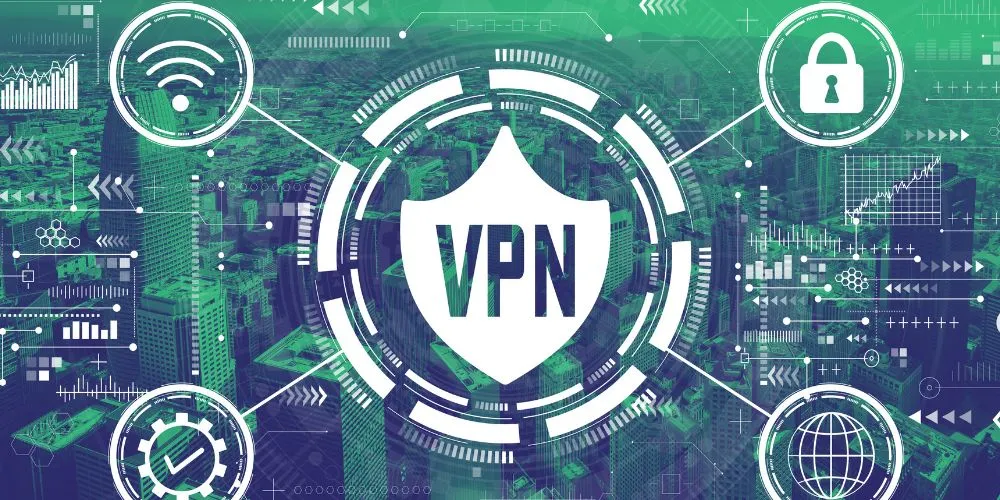Living in a digital age fraught with concerns about online privacy and security, Virtual Private Networks (VPNs) have emerged as essential tools. Whether your goal is to fortify your internet connection, access region-restricted content, or shield your data from prying eyes, understanding how to use a VPN is pivotal. This article provides a detailed, step-by-step guide on harnessing the power of a VPN for a safer and more private online experience.
Understanding the Basics of VPNs
Before diving into the functional aspects, it’s essential to grasp the fundamental concepts of a Virtual Private Network. A Virtual Private Network makes a secure, encrypted connection between your device and the internet. This encrypted tunnel ensures that your online activities remain private and protected from potential threats. By establishing a secure connection, Virtual Private Networks offer users a layer of confidentiality and security that is especially valuable in the digital landscape.
Choosing the Right VPN Service
Selecting a reliable Virtual Private Networks service provider is the initial step in the process. When deciding, Consider server locations, connection speed, and privacy policies. Opt for a Virtual Private Network (VPN) provider that aligns with your specific needs, whether it’s enhanced security, geographically unrestricted access, or a combination of both. A comprehensive review of available options ensures you choose a service that meets your unique requirements.
Installing and Setting Up the VPN
Once a suitable VPN provider is chosen, the next step is to install and set up the VPN on your device. Most VPN services offer user-friendly apps for various platforms, including Windows, macOS, iOS, and Android. Download the app, follow the installation prompts, and sign in with your credentials. This streamlined process allows users to integrate a VPN into their daily online activities regardless of their technical expertise.
Choosing Server Locations
VPNs operate by rerouting your internet traffic through servers located in different regions. When using a Virtual Private Network, you can select the server location to which you desire to connect. It permits you to access region-specific content and enhances your online privacy by masking your actual IP address. The ability to choose server locations provides users with flexibility and control over their online presence.
Using a VPN for Enhanced Security and Privacy
With the VPN set up, let’s explore how to utilize it to enhance your online security and privacy.
Securing Public Wi-Fi Connections
One of the primary advantages of a Virtual Private Network is its ability to secure your connection, especially when using public Wi-Fi networks. Enable your Virtual Private Networks before connecting to any public Wi-Fi hotspot to encrypt your data and protect it from potential hackers operating on the same network. This practice ensures that users can confidently access public Wi-Fi without compromising sensitive information.
Accessing Geo-Restricted Content
Many online services and streaming platforms restrict content based on your geographical location. By connecting to a server in a different region using your Virtual Private Networks, you can bypass these limitations and access a broader range of content. This feature is particularly useful for users who want to access a wide range of online content without being limited by geographic boundaries.
Ensuring Anonymous Browsing
A Virtual Private Network masks your IP address, making it challenging for websites, advertisers, and even your Internet Service Provider (ISP) to track your online activities. Enjoy a higher level of anonymity as your VPN conceals your actual location and identity. This anonymity is crucial for individuals who seek to browse the internet without being subjected to targeted advertisements or invasive tracking practices.
Protecting Against Online Surveillance
In an era of increasing online surveillance, Virtual Private Networks act as a shield, preventing third parties from monitoring your internet activities. Your encrypted connection ensures that your browsing history and sensitive data remain private and confidential. This protection against surveillance is particularly important for individuals who prioritize maintaining the confidentiality of their online interactions.
Conclusion
A VPN is a powerful strategy for enhancing online security and privacy. Choosing the right VPN service, installing and setting up the application, and understanding how to leverage its features can unlock a safer and more private online experience. Whether you’re looking to secure your connection on public Wi-Fi, access geo-restricted content, or browse the internet anonymously, a VPN is a versatile tool that empowers you to take control of your online presence. Stay informed, stay secure, and embrace the benefits of a Virtual Private Network in our interconnected digital landscape.





